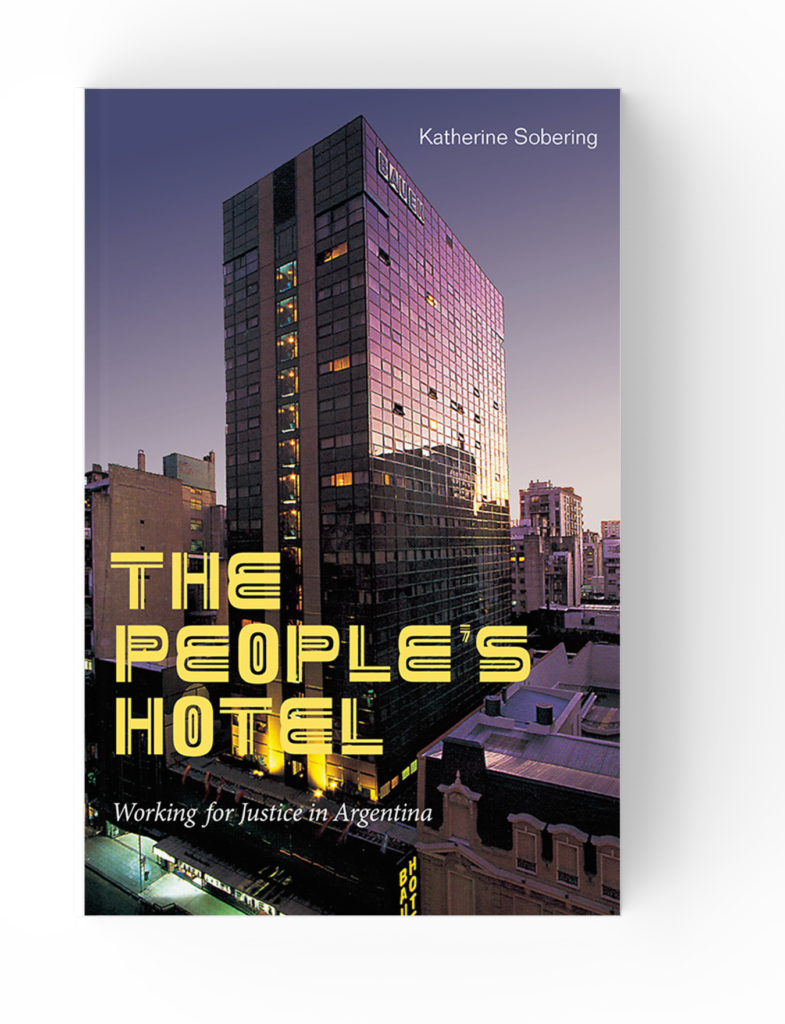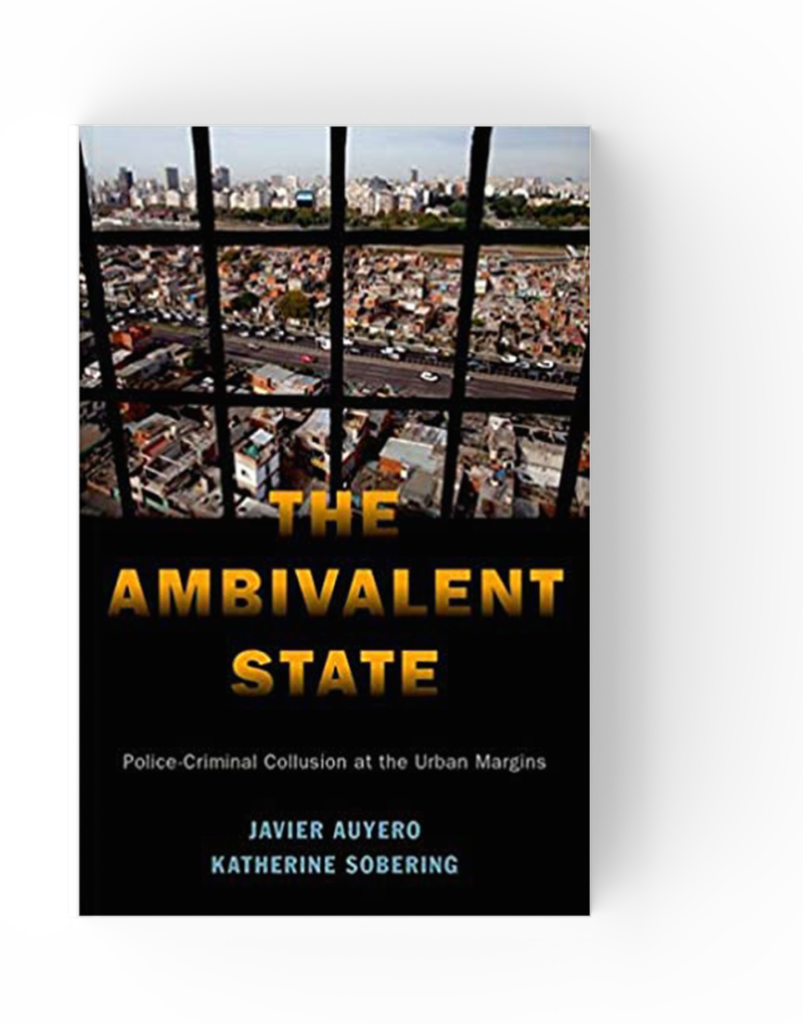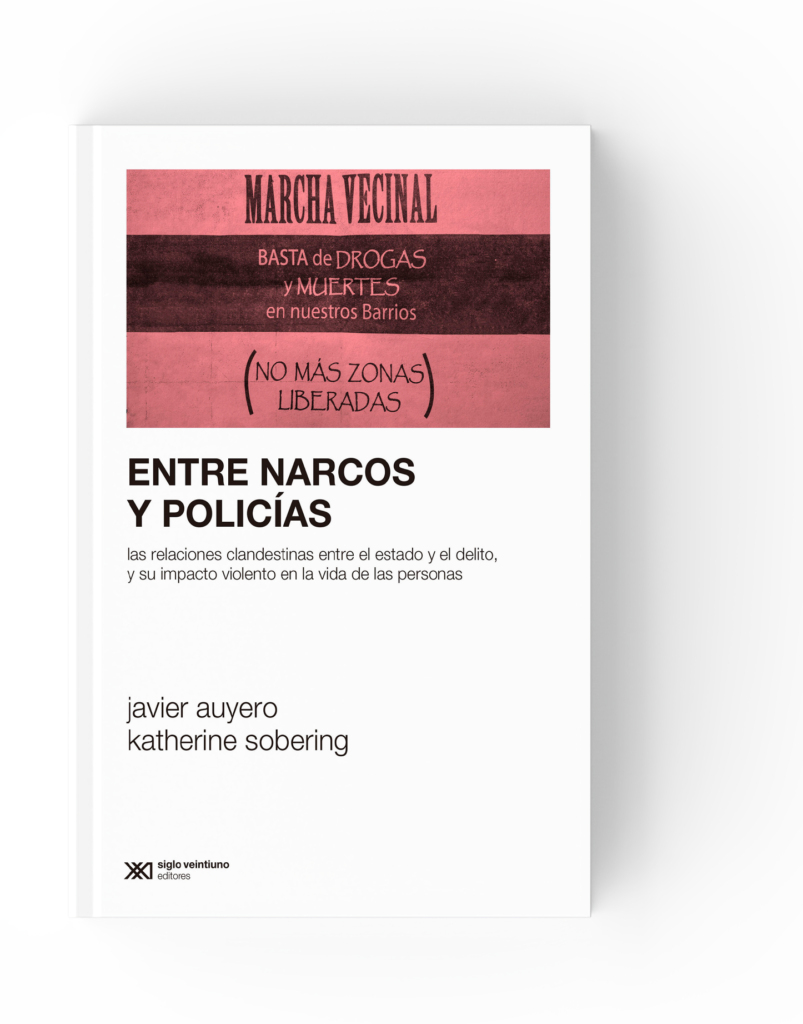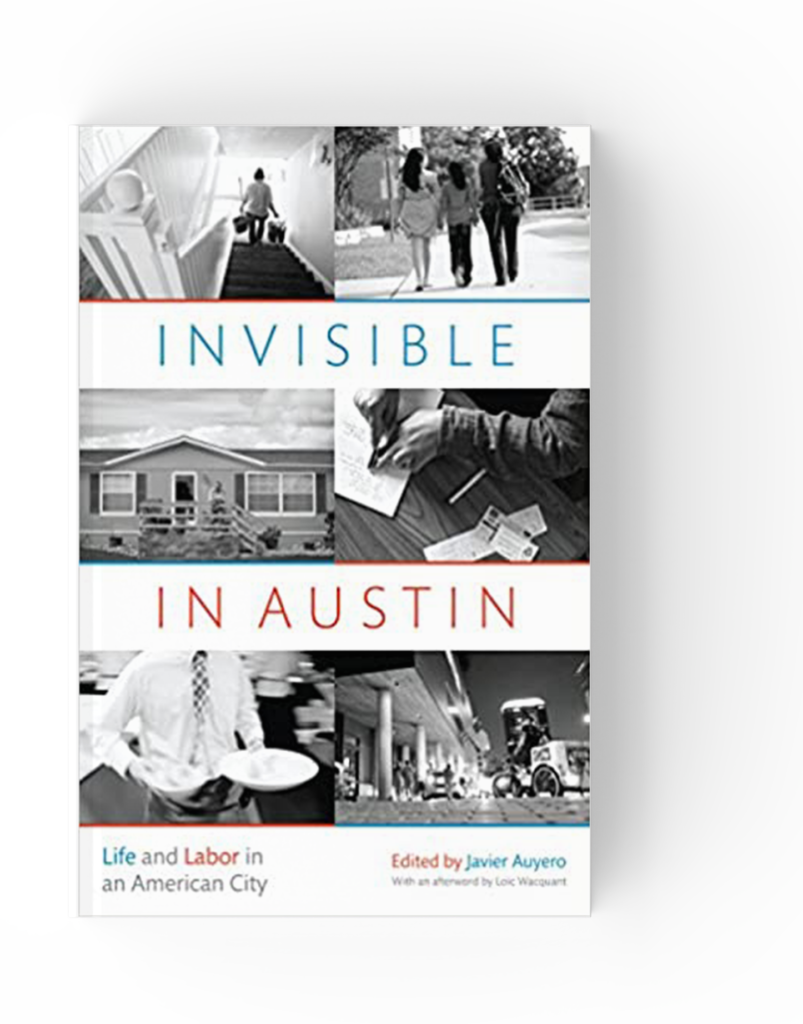
Working for Justice in Argentina
In 2001 Argentina experienced a massive economic crisis: businesses went bankrupt, unemployment spiked, and nearly half the population fell below the poverty line. In the midst of the crisis, Buenos Aires’s iconic twenty-story Hotel Bauen quietly closed its doors, forcing longtime hospitality workers out of their jobs. Rather than leaving the luxury hotel vacant, a group of former employees occupied the property and kept it open. In The People’s Hotel, Katherine Sobering recounts the history of the Hotel Bauen, detailing its transformation from a privately owned business into a worker cooperative democratically, jobs were rotated, and all members were paid equally. Combining ethnographic and archival research with her own experiences as a volunteer worker at the hotel, Sobering examines how the Bauen Cooperative grew and, against all odds, successfully kept the hotel open for nearly two decades. Highlighting successes and innovations alongside the many challenges that these workers faced, Sobering presents a vivid portrait of efforts to address inequality and reorganize work in a capitalist economy.

Police-Criminal Collusion at the Urban Margins (Global and Comparative Ethnography)
Over the last few decades, debates about policing in poor urban areas have turned from analyzing the state’s neglect and abandonment into documenting its harsh interventions and punishing presence. Yet, we know very little about the covert world of state action that is hidden from public view. In The Ambivalent State, Javier Auyero and Katherine Sobering offer an unprecedented look into the clandestine relationships between police agents and drug dealers in Argentina. Drawing on a unique combination of ethnographic fieldwork and documentary evidence, including hundreds of pages of wiretapped phone conversations, they analyze the inner-workings of police-criminal collusion, its connections to drug markets, and how it promotes cynicism and powerlessness in daily life. They argue that an up-close examination of covert state action exposes the workings of an ambivalent state: one that both enforces the rule of law and functions as a partner in criminal behavior. The Ambivalent State
develops a political sociology of violence that focuses not only on what takes place in police stations, courts, and poor neighborhoods, but also the clandestine actions and interactions of police, judges, and politicians that structure daily life at the urban margins.

Entre Narcos y Policías
Las Relaciones Clandestinas entre el Estado y el Delito, y su Impacto Violento en la Vida de las Personas
“La policía no hace nada. La policía es toda transa. Agarran a un narco a mitad de cuadra y lo sueltan en la esquina”. “Quiero 3000 pesos o te tiro abajo el kiosco”. “La policía bardea a los pibes. También les meten droga. Y algunos pibes trabajan para la cana”. “Decile que tiene quince minutos para irse a otro lado, o le rompemos las piernas”. En una polifonía reveladora y brutal, estas voces de vecinos, de dealers, de policías se entremezclan en este libro para reconstruir una escena inquietante: la colaboración clandestina entre narcotraficantes y efectivos de las fuerzas de seguridad en los barrios vulnerables de distintos lugares de la Argentina. Dinero por drogas, por armas, por liberar una zona, por anticipar un operativo, por impedir el negocio de un dealer rival: un entramado de lealtades y transacciones, siempre al borde de la traición, se repite del Conurbano bonaerense a Rosario y la frontera noreste del país. En estas páginas, los autores suman a un trabajo etnográfico impecable una fuente valiosísima pero inusual en estas investigaciones: las transcripciones de escuchas telefónicas entre narcotraficantes y agentes de la Policía, la Prefectura y la Gendarmería en varias causas judiciales. Todo este material aleja el análisis de las habituales miradas sobre un “Estado ausente” o, en el otro extremo, un Estado punitivo y de “mano dura”. En estos barrios, dicen los autores, funciona un “Estado ambivalente”, que mientras hace cumplir la ley, en el mismo lugar y al mismo tiempo es socio de conductas criminales. Entre narcos y policías rescata además a los protagonistas silenciados de esta historia: los habitantes de estas zonas vulneradas, para quienes el barrio se volvió “tierra de nadie” y el narco es esa fuerza capaz de entrar en sus hogares y arrebatarles a sus propios hijos. Al iluminar esa trama de complicidades, los autores que han investigado estos territorios a fondo como pocos revelan los problemas estructurales de los conurbanos, esa suerte de “caja negra” política y sociológica sobre la que siguen pesando prejuicios e ignorancias.

Invisible in Austin
Life and Labor in an American City
Chapter 8: Ethan: A Product of the Service Industry
Austin, Texas, is renowned as a high-tech, fast-growing city for the young and creative, a cool place to live, and the scene of internationally famous events such as SXSW and Formula 1. But as in many American cities, poverty and penury are booming along with wealth and material abundance in contemporary Austin. Rich and poor residents lead increasingly separate lives as growing socioeconomic inequality underscores residential, class, racial, and ethnic segregation.
In Invisible in Austin, the award-winning sociologist Javier Auyero and a team of graduate students explore the lives of those working at the bottom of the social order: house cleaners, office-machine repairers, cab drivers, restaurant cooks and dishwashers, exotic dancers, musicians, and roofers, among others. Recounting their subjects’ life stories with empathy and sociological insight, the authors show us how these lives are driven by a complex mix of individual and social forces. These poignant stories compel us to see how poor people who provide indispensable services for all city residents struggle daily with substandard housing, inadequate public services and schools, and environmental risks. Timely and essential reading, Invisible in Austin makes visible the growing gap between rich and poor that is reconfiguring the cityscape of one of America’s most dynamic places, as low-wage workers are forced to the social and symbolic margins.
